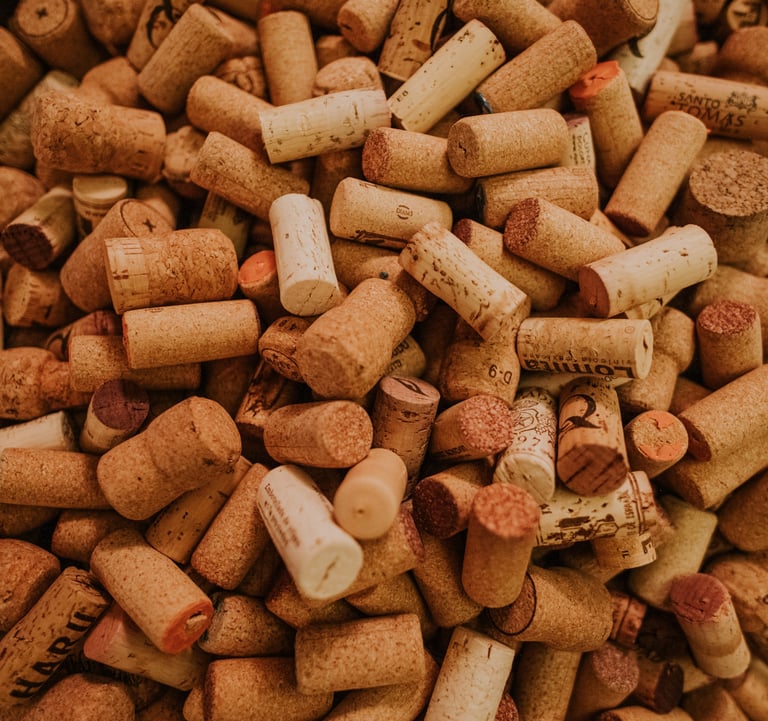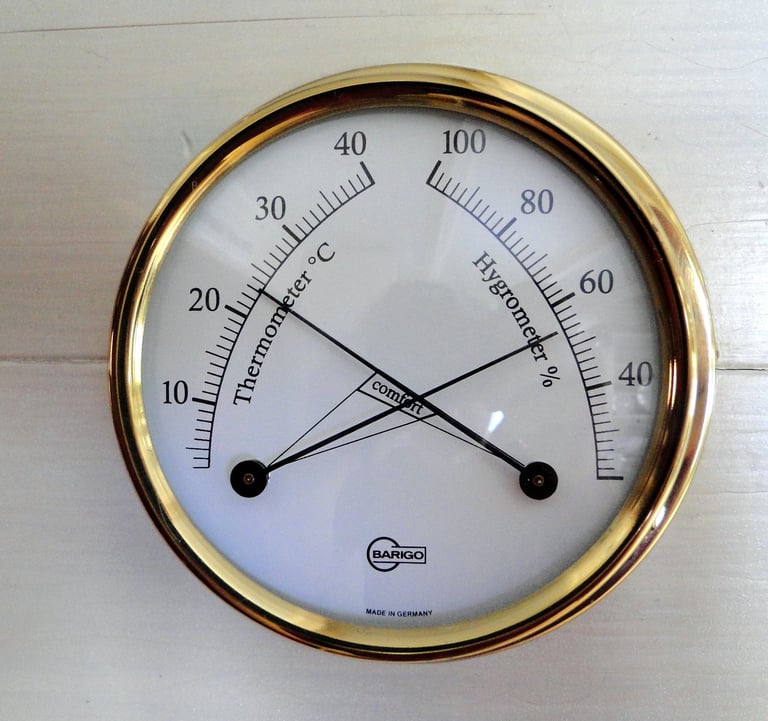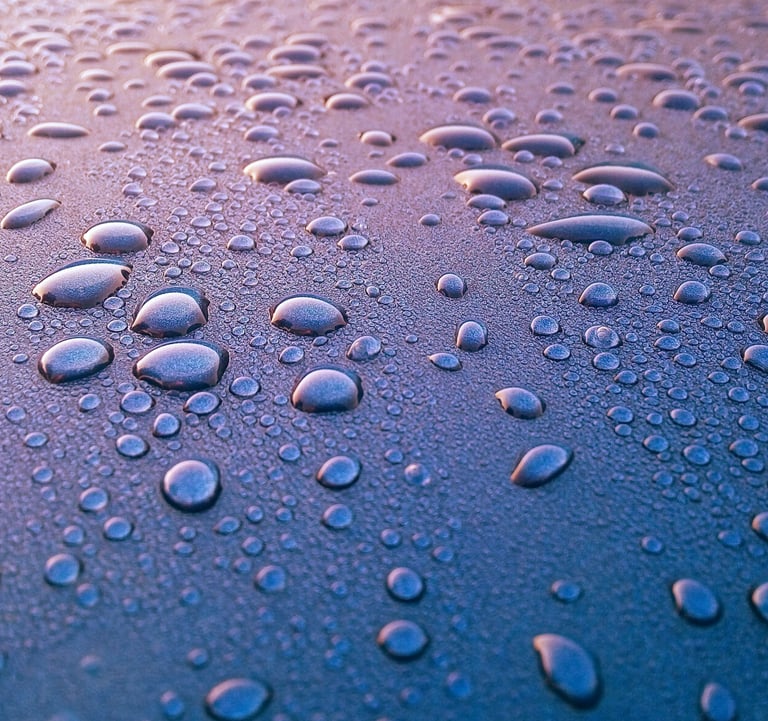How to (correctly) store your bottles of spirit drinks?
Some of you are occasional drinkers owning two or three bottles, some of you may have dozens of them. The quantity does not matter: if you want your spirits to keep their quality over time, follow these simple advices.
Air is your enemy
In contrast to breathing, drinking does not require air. By the way, if you try to do both simultaneously, you are likely to experience an unpleasant moment. Do not try this at home.
In its bottle, your booze does not like air either. More precisely the oxygen it contains. As for wines, spirits can be oxidized. This chemical phenomenon called oxidation is the same that makes your half of avocado turning brown when left in open air. Oxygen reacts with a lot of materials, a lot of molecules, generally by turning them to their dark side of the force. For instance, the alcohol (ethanol) of a fresh wine rapidly become ethanal in presence of oxygen, an aroma compound (an aldehyde) that brings an unpleasant odor of acrid, green apple. Afterward, this aldehyde then become itself oxidized into acetic acid, a.k.a vinegar.
Oxygen also impacts the color of a product. Think of sliced apples (or avocadoes). Browner hues can appear on an originally clear material. In the same manner, the coloring compounds of wines become darker in presence of oxygen.
On an aromatic and appearance point of view, you definitely want to avoid your wine to be oxidized, especially the whites that are more sensitive than rosé and red wines which contains more of – aptly named – antioxidant compounds.
To avoid oxidation, the cork stopper should be put back on an unfinished bottle to keep it until the next day. To go further, bars selling single glasses of wines are likely to invest into a system that remove the air in the headspace of the bottle (the space above the liquid). Air is then replaced by an inert gas (generally nitrogen or argon), that does not react with the wine compounds. The bottles can be kept this way for days or even weeks without alteration.
In spirit drinks, the higher quantity of alcohol compared to wines help to prevent the oxidation. Nevertheless, they are generally kept over a longer period, giving time for the oxygen to act, especially on bottles with low level of liquid remaining. More room for the air above the liquid (more headspace) = more oxygen.
Some drinks are more sensitive than others. Citrus-based spirits (triple sec/curaçao, limoncello, orange liqueurs…) are some of them. The aldehydes they contains, partly responsible for their aromatic freshness, turn into acids which are louder, heavier aroma compounds. Your Margarita will not taste the same as your triple sec bottle is dwindling. However, a small oxidation is generally needed after distillation of citruses, as the harsh effect of aldehydes at high concentration are rounded up by a small conversion into their corresponding acids. Indeed, a small oxidation is sometimes needed as for butter which tastes better when it is slightly rancid.
Fruits liqueur, especially red and black fruits (raspberry, strawberry, blackcurrant), but also peach, apricot, pear or apple spirits does not like oxygen at all. The fresh aspect of the sound fruit rapidly turn into weaker, often dusty-like aromatic notes. Would you prefer the aromas of a pear you just pick from the tree, or the aromas of a pear that has spent the winter in your grandma attic? Because that is what oxygen do on fruit liqueurs.
As said above, the ethanol content acts as a barrier for oxygen. Thus, lower ABV (Alcohol By Volume) products will be more rapidly affected. A 50% ABV whisky might remain almost the same for a year or two, but think of a 19% port wine: you will definitely prefer the first sip of the bottle than the last one. The impact of oxygen on color in this case is also clearly visible, with darker hues of brown-red coming into play.
To be fair with oxygen, as I do not want to offend the only gas I can breathe, it positively acts on the maturation of spirits in wooden casks. The rancio is notably known in cognac to play a role in old eaux-de-vie. This rancio is partly, but not only, due to the (here desired) high oxidation of some molecules. But once in the bottle, you do not want this cognac to continue its oxidation. It is often said that spirits does not age anymore once bottled. Well, this is not entirely true as the oxygen may have its impact.
How to prevent your spirits to be oxidized?
- Ensure you closures have kept their integrity: change a damaged cap, a crumbled cork. If a stopper does not have a plastic or metal part above its cork body, change it for a port or whisky stopper that possess it. Indeed, the cork itself is porous by nature.
- Close your bottles as tight as possible, do not let a cork poorly inserted in the neck, and correctly tighten the caps. To go further, you can wrap the whole closure with paraffin (waxed) paper. This additional protection will prevent any oxygen to go inside the bottle.
- If you are a purist and if you plan to store a bottle for years, especially if a low level remaining, you can have a look on a nitrogen or argon system of preservation (expensive).
- If possible, pour opened bottles into smaller ones (always use glass containers), as you will reduce the headspace content. Ensure this small flask is itself correctly closed.
- Place your bottles in a closed cabinet, away from airstreams.
N.B.: A good closure is also needed to avoid your spirit simply to evaporate! Unless you wish to perfume a room, which could be an idea.


Light is also your enemy
Have you heard about the current aspect of the USA flag planted in 1969 on the moon? Funny enough, the stars has disappeared (and the stripes as well). It is now a completely white flag. NASA should think about painting it back, as the radiations from the sunlight have made it faded.
It is the same phenomenon that can be visible on photos or posters that are touched by sunlight for years: they are “bleached”. This vanishing of colors is due to ultraviolet waves the sun emits. What turns your skin darker (because of another reaction) will turn your rum into a pale chardonnay or even a vodka if you let it do so.
In addition to the loss of color, ultraviolet rays can interact with the aroma compounds of a spirit, degrading them into less interesting compounds, or even off-flavors in some cases.
How to protect your spirits from light?
- Mandatory: Avoid at all costs the direct sunlight; A shadowed shelf can do the job
- Better: Place your bottles in a closed cabinet


Cold and heat are not your friends either
Temperature is a major factor in the preservation of spirits. A cold environment will solidify some fatty aroma compounds, notably acids but also esters. Esters bring fruity notes and are especially present in rum but also cognac and whisky. These compounds, because of their fatty aspect, will react to cold by aggregating.
Think of butter. At room temperature, butter is liquid, but it is solid in the fridge. This also happens at a molecular level on spirits. If you refrigerate a rum rich in esters you may encounter small aggregates, not always visible to naked eye. And what is not diluted, dispersed correctly within the spirit, will impact the taste and aroma. Cold is indeed removing flavors because of its reaction of some of them. It is not a true loss though, as bringing back the same spirit at room temperature, with some stirring, will dispersed back again all aggregated esters. Nothing was removed from the bottle.
Removing compounds from a spirit is the principle of chill filtration: spirits are refrigerated before being passed though filters. Impurities are removed, as well as a great quantity of aroma compounds. A loss of 25% of the initial ester content in rum after chill filtration are often encountered. Chill filtration can be either a marketing argument in favor of purity or the absence of it is a counter argument for aroma intensity.
Cold also will slow down the ability of compounds to evaporate from the glass, to reach your nose to be detected. Indeed, even when you put a spirit in your mouth, it is your nose that does most of the job: smelling aromas.
For this to work, an aroma molecule must have the ability the reach the nose, by turning into a gas (evaporation or boiling). This is why molecules with a low temperature of boiling will be easily and quickly smelled, while heavier compounds will need time. For instance, you will smell wood compounds, which are heavy molecules, of an old spirits a long time after swallowing: this length is moreover a guarantee of quality.
If the drink is too cold, the temperature of your mouth and throat will not be sufficient for compounds to correctly evaporate toward your nose and they will end directly in your stomach, which is sad.
A cold spirit has a lighter smell than a tempered one. If you have a cold bottle and you do not have the time to wait for it to warm up before tasting it: pour a small quantity into a glass, and place your hands around it. The heat of your body will transmit to the glass then to the liquid. For a small dose (does not work on a full pint!), you will notice the difference within minutes. And your spirit will slowly become more interesting, more complex in terms of aromatic, more intense.
One does not simply want the spirits to be tempered, it should not be hot either. As the opposite of cold, heat will enhance the volatility, the evaporation of compounds. You may have tasted old rums under tropical climate with bottles at 30+ °C: it is not the best way to enjoy them.
If a drink is too hot and you are not enjoying it correctly (it feels too heavy, too loud, not fine enough), you may refresh it with ice cubes. If you do not want to dilute it, there are ice cubes made of stone, which you simply put into your freezer a few hours before using them. There are also numerous “wine refreshers” that may be useful, from sleeves to wrap around the bottle, to rods to directly dip into the liquid. A bowl filled with ice and water where you place your bottle before drinking it also works (the labels are generally engineered to handle humidity and ice).
How to keep your spirits tempered?
- Avoid places too close to a heating or cooling system (A/C, radiator, boiler, oven, fireplace)
- Avoid places too close to windows or doors
- Avoid non-insulated places such as attics
- Store your bottles in a tempered cabinet; Cupboards built within walls are a good option, if dry enough (see after)


Moisture is one more enemy
Humidity can at the minimum damage the labels and the cardboard cases of your spirits. It can also impact the closures by tempting molds to develop on it, possibly leading to off-flavors in the spirits. While humid cellars are a gift for the maturation of spirits in wood casks, mellowing the alcohol and giving a smoother product, humidity is not desired for the storage of finished products in bottles.
How to keep your spirits away from moisture?
- Avoid places with too much humidity like underground wine cellars
- If needed, use dehumidifiers
- Store your bottles in a dry environment


I prefer to stand
Unlike wine of which the bottles need to be stored laid down in order to partly soak the cork stopper (to ensure a good sealing and proper gas exchanges during ageing in cellars), spirit bottles must be kept upright. The power of alcohol to extract and dissolve many materials is not fresh news, ethanol is a strong solvent. Here, the contact with the cork or the caps should be avoided to ensure no off-flavors are extracted. A cork taint is even a worse feeling in a spirit than in a wine, since the quantity of TCA (the main compound responsible for cork taint) extracted from the stopper is generally higher, because of the ethanol content.
How to keep your spirits not laid down?
- Just keep them upright!


Summary
Store your bottles of spirit drinks upright and correctly closed, in a tempered and dry environment, away from light.
If you follow these advices you will be able to keep your booze for years without a flinch!
Cheers!
Alcohol abuse is dangerous for your health, consume in moderation.
